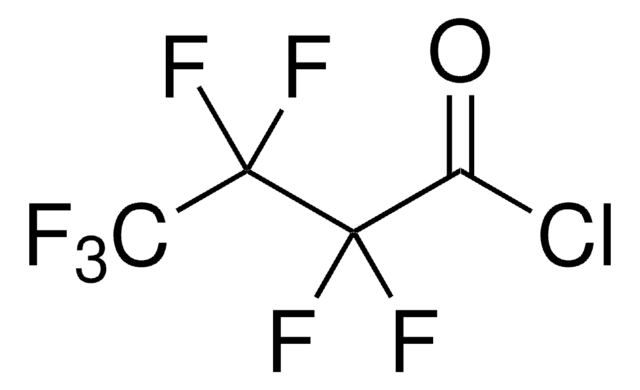267201
Platinum
wire, diam. 0.5 mm, 99.99% trace metals basis
Sinónimos:
Platinum element, Platinum gray
Iniciar sesiónpara Ver la Fijación de precios por contrato y de la organización
About This Item
Fórmula empírica (notación de Hill):
Pt
Número de CAS:
Peso molecular:
195.08
Número CE:
Número MDL:
Código UNSPSC:
12141734
ID de la sustancia en PubChem:
NACRES:
NA.23
Productos recomendados
Análisis
99.99% trace metals basis
formulario
annealed
wire
resistividad
10.6 μΩ-cm, 20°C
Diámetro
0.5 mm
bp
3827 °C (lit.)
mp
1772 °C (lit.)
densidad
21.45 g/cm3 (lit.)
cadena SMILES
[Pt]
InChI
1S/Pt
Clave InChI
BASFCYQUMIYNBI-UHFFFAOYSA-N
Categorías relacionadas
Descripción general
Platinum (Pt) is a highly ductile, malleable and unreactive metal. It is resistant to corrosion and stable at high temperatures. Although resistant to hydrochloric and nitric acid, it dissolves readily in hot aqua regia to form chloroplatinic acid.
Aplicación
Pt wire may be used :
- as a microelectrode-indicator electrode in voltammetry
- as a transvascular embolic agent
- to study chronopotentiometry of hydrogen peroxide with a platinum wire electrode or
- in gas detection instruments.
Cantidad
400 mg = 10 cm; 2 g = 50 cm
Código de clase de almacenamiento
13 - Non Combustible Solids
Clase de riesgo para el agua (WGK)
nwg
Punto de inflamabilidad (°F)
Not applicable
Punto de inflamabilidad (°C)
Not applicable
Certificados de análisis (COA)
Busque Certificados de análisis (COA) introduciendo el número de lote del producto. Los números de lote se encuentran en la etiqueta del producto después de las palabras «Lot» o «Batch»
¿Ya tiene este producto?
Encuentre la documentación para los productos que ha comprado recientemente en la Biblioteca de documentos.
Los clientes también vieron
Voltammetry with Stationary Microelectrodes of Platinum Wire.
Laitinen HA and Kolthoff IM
The Journal of Physical Chemistry, 45(7), 1061-1079 (1941)
Muhammad Rashid et al.
Journal of nanoscience and nanotechnology, 13(5), 3627-3633 (2013-07-19)
Platinum nanoparticles (Pt NPs) were chemically deposited on a Nafion polymer electrolyte membrane by the impregnation-reduction (I-R) procedure to prepare an active electrode for solid electrochemical sensors. Various analysis methods such as SEM, EDX, XRD and cyclic voltammogram (CV) measurements
Yuan Xiong et al.
Organic letters, 15(8), 1962-1965 (2013-04-12)
Metal-mediated rearrangements of 3-alkynyl flavone ethers are reported. The overall process involves 5-endo enyne cyclization to a platinum-containing spiro-oxocarbenium intermediate which may be trapped with methanol to produce spirodihydrofurans or further rearranged to afford either allenyl chromanediones or benzofuranones.
Wei Sun et al.
Materials science & engineering. C, Materials for biological applications, 33(4), 1907-1913 (2013-03-19)
In this paper a platinum (Pt) nanoparticle decorated graphene (GR) nanosheet was synthesized and used for the investigation on direct electrochemistry of myoglobin (Mb). By integrating GR-Pt nanocomposite with Mb on the surface of carbon ionic liquid electrode (CILE), a
Shai Rozen et al.
Plastic and reconstructive surgery, 131(6), 1253-1265 (2013-05-30)
Left untreated, paralytic lagophthalmos may result in corneal dryness, ulcerations, and subsequent blindness. The most common nondynamic surgical solution is upper eyelid weight placement in a superficial, pretarsal pocket, carrying the risk of visibility, extrusion, and entropion. The authors present
Nuestro equipo de científicos tiene experiencia en todas las áreas de investigación: Ciencias de la vida, Ciencia de los materiales, Síntesis química, Cromatografía, Analítica y muchas otras.
Póngase en contacto con el Servicio técnico



